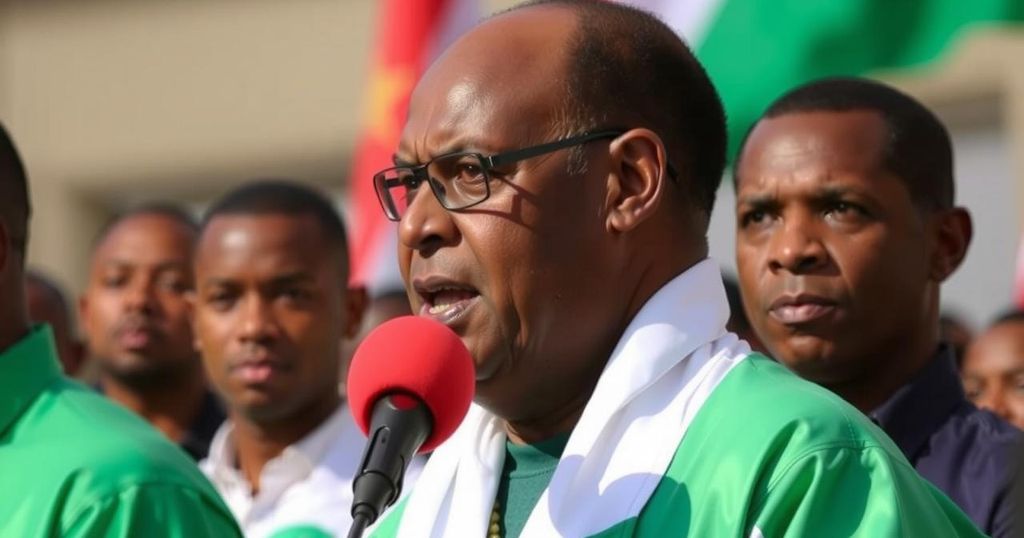Chad’s ruling party won a majority in parliamentary elections boycotted by the main opposition, securing 124 out of 188 seats in an election that recorded a 51.5% turnout. This event marks the first parliamentary vote in over a decade and is seen as consolidating President Mahamat Idriss Deby’s power. The electoral process faced severe criticism from opposition parties, calling it a ‘charade.’
N’DJAMENA, Chad (AP) — In a significant political development, Chad’s ruling Patriotic Salvation Movement party has emerged victorious in the recent parliamentary election, securing 124 out of 188 seats amid a boycott by the main opposition parties. This election, the first in over a decade, recorded a voter turnout of 51.5%, as announced by Ahmed Bartchiret, the head of the electoral commission. Observers had indicated that this election would solidify President Mahamat Idriss Deby’s power after his military ascent in 2021 following the death of his father, the long-standing President Idriss Deby Itno. Deby had framed this election as a step toward a decentralization of power that Chadians have long awaited.
The parliamentary election included regional and municipal elections and was viewed as a concluding phase in Chad’s transition toward a more democratic governance structure. However, the election was marred by the boycott of over ten opposition parties, including the notable Transformers party led by Succes Masra, who had previously placed second in the presidential race. The opposition condemned the election as a “charade,” expressing concerns that the process would mirror the disputed presidential vote, which was criticized by observers for lacking credibility. The main opposition has yet to publicly respond to the election results.
This electoral event occurs in a precarious moment for Chad, as the nation grapples with various security challenges, including insurgent attacks from Boko Haram in the Lake Chad region and a significant cooling of relations with France, historically one of its most vital allies. Deby’s administration faces multifaceted challenges while attempting to navigate the complexities of governance in a nation marked by both aspirations for democratic processes and persistent instability.
The parliamentary election held in Chad represents a critical moment for the nation, marking the first such event since the passing of long-time ruler Idriss Deby Itno. Following Idriss Deby’s death, his son, Mahamat Idriss Deby, assumed power in a military coup in 2021, prompting questions about the future of democracy in the country. This election was intended to conclude the transitional period and foster a more decentralized governance structure, yet its legitimacy was severely undermined by the boycott and objections of major opposition groups, leading to a contentious political landscape.
In conclusion, the recent parliamentary election in Chad has reinforced the dominance of the ruling Patriotic Salvation Movement amid significant opposition boycotts, raising questions about the country’s democratic transition. While the election has been framed as a move towards decentralization of power, the lack of participation from key opposition parties and the prevailing security challenges signal a complicated road ahead for Chad’s governance and stability.
Original Source: www.seattletimes.com






